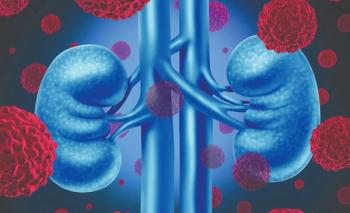
Late Diagnosis: Cause of Poorer Survival in Alcohol-Related Liver Cancer?
Patients with alcohol-related HCC had worse OS than other HCC patients, mainly due to poorer liver function and more unfavorable tumor characteristics at diagnosis.
Investigators of a large French prospective study
Worldwide, liver cancer is the second leading cause of cancer-related deaths, accounting for more than 600,000 deaths annually, according to the American Cancer Society (ACS). The ACS has estimated that, in the United States in 2018, approximately 42,220 new cases of primary liver cancer and intrahepatic bile duct cancer (30,610 in men) will be diagnosed, with about 30,200 cancer-related deaths (20,540 in men). Since 1980, the incidence of liver cancer has more than tripled; and since 2000, liver cancer death rates have increased by almost 3% each year.
With improved treatment of hepatitis B and C virus infections, which are the major risk factors for liver cancer, alcohol consumption is expected to emerge as a leading cause of liver cancer globally. In the United States, the
In their study to compare clinical outcomes in patients with alcohol-related vs non–alcohol-related liver cancer, Charlotte Costentin, MD, of Hôpital Henri-Mondor in Créteil, France, and colleagues examined 894 patients with newly diagnosed liver cancer who were followed for 5 years. Sixty-five percent (n = 582) had a history of chronic alcohol abuse and 35% (n = 312) did not. Costentin et al documented whether or not patients with alcohol-related liver cancer were abstinent at the time they were diagnosed with cancer.
At the end of the 5-year study period, 601 patients had died. “Alcoholârelated HCC [hepatocellular carcinoma] was more likely to be diffuse and detected in patients with a worse performance status and worse liver function,” the researchers wrote. Median OS was 9.7 months in patients with non–alcohol-related liver cancer compared with 5.7 months in patients whose liver cancer was alcohol-related (P = .0002). However, median OS was similar in the alcoholâabstinent (5.8 months) and alcohol nonabstinent groups (5.0 months; P = .09).
Importantly, the investigators reported that “[t]he prognostic role of alcohol disappeared when survival was assessed at each Barcelona Clinic Liver Cancer (BCLC) stage. Patients with HCC detected during a cirrhosis followâup program (n = 199 [22.3% of the whole cohort]) had increased lead time–adjusted median OS in comparison with patients with HCC diagnosed incidentally (11.7 vs 5.4 months; P < .0001).”
The results suggest that patients with alcohol-related liver cancer have poorer OS than patients with non–alcohol-related liver cancer mainly due to poorer liver function and more unfavorable tumor characteristics at diagnosis, “as attested by similar survival within each BCLC stage,” the researchers wrote.
In light of these findings, Costentin and colleagues have called for improvements in screening programs for cirrhosis and liver cancer, as well as improved patient access to alcoholism treatment services. The hope is that such measures might result in greater numbers of patients with alcohol-related liver cancer who have greater liver function and smaller tumor burdens than were observed in the current study-that is, a clinical condition that would make them better candidates for curative treatment.
Newsletter
Stay up to date on recent advances in the multidisciplinary approach to cancer.















































